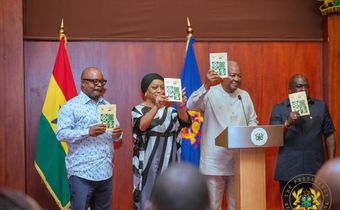Code of Conduct: 10 strict rules every appointee of President Mahama must follow
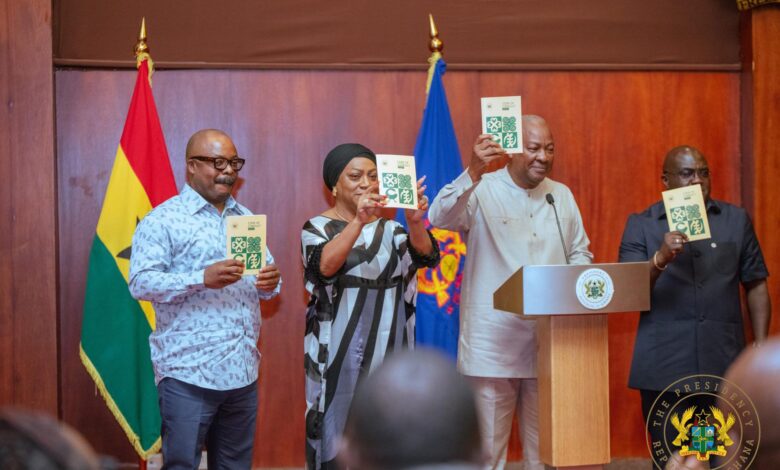
On Monday, 6 May 2025, President John Dramani Mahama launched a new Code of Conduct for public officials aimed at promoting integrity, professionalism, and ethical governance within his administration.
The Code outlines clear expectations regarding honesty, impartiality, respect, incorruptibility, and competence among government appointees.
In his address, President Mahama stressed the vital importance of ethical behaviour, warning public officials against accepting gifts, engaging in conflicts of interest, or using their positions for personal gain or the benefit of family and friends.
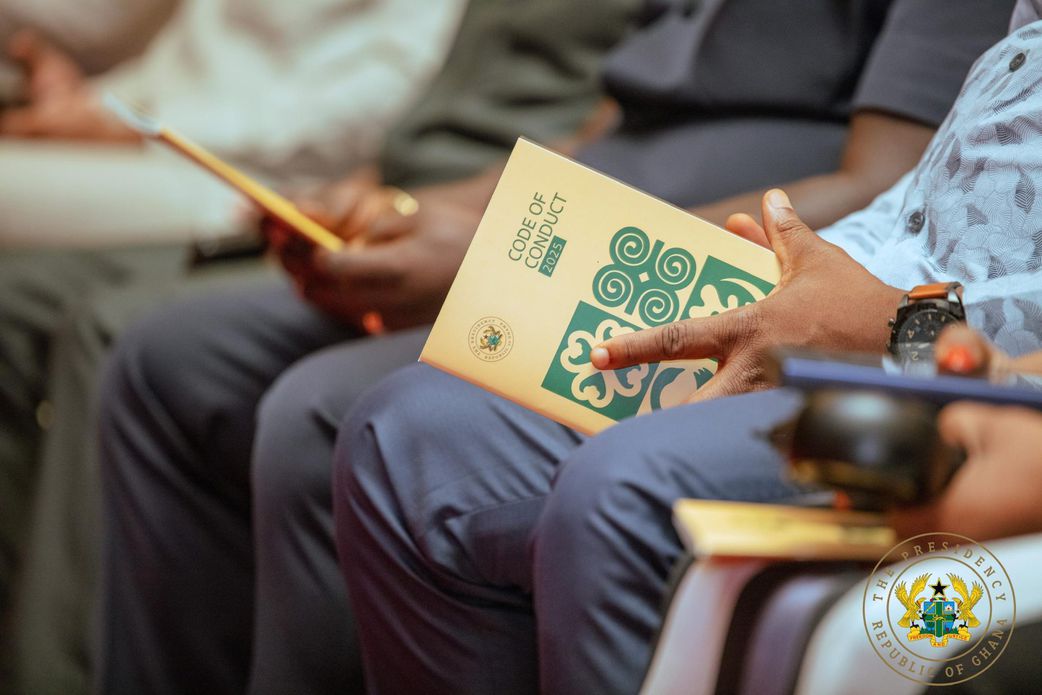
Ghanaian rapper Sarkodie shares a powerful clip of Mahama urging African leaders to take ownership of the continent’s resources—calling it “the revolution being televised.”
Bishop Dag Heward-Mills responds to criticism over his remarks on church musicians’ pay, warning detractors not to “touch the anointed” and calling critics “fools” for challenging spiritual authority.
Below are ten of the key rules extracted from the Code of Conduct document obtained by Pulse News:
ALSO READ: Assets Declaration: Mahama orders seizure of 3-month salaries of 55 defiant appointees
1. Conflict of Interest
Ministers must:
-
Avoid situations that may give the impression their official decisions are influenced by personal, financial, or business interests;
-
Recognise that their role is public, and both real and perceived conflicts of interest are equally critical in assessing the propriety of their actions.
2. Influence Peddling
Ministers must not engage in influence peddling — the illegal practice of using one’s official position or connections to gain undue favours or preferential treatment. Upholding transparency and the credibility of government is paramount.
3. Use of Budgetary Allocations
Ministers are expected to ensure government operations under their authority are conducted in an economical, efficient, and lawful manner, adhering to all applicable regulations and financial reporting standards.
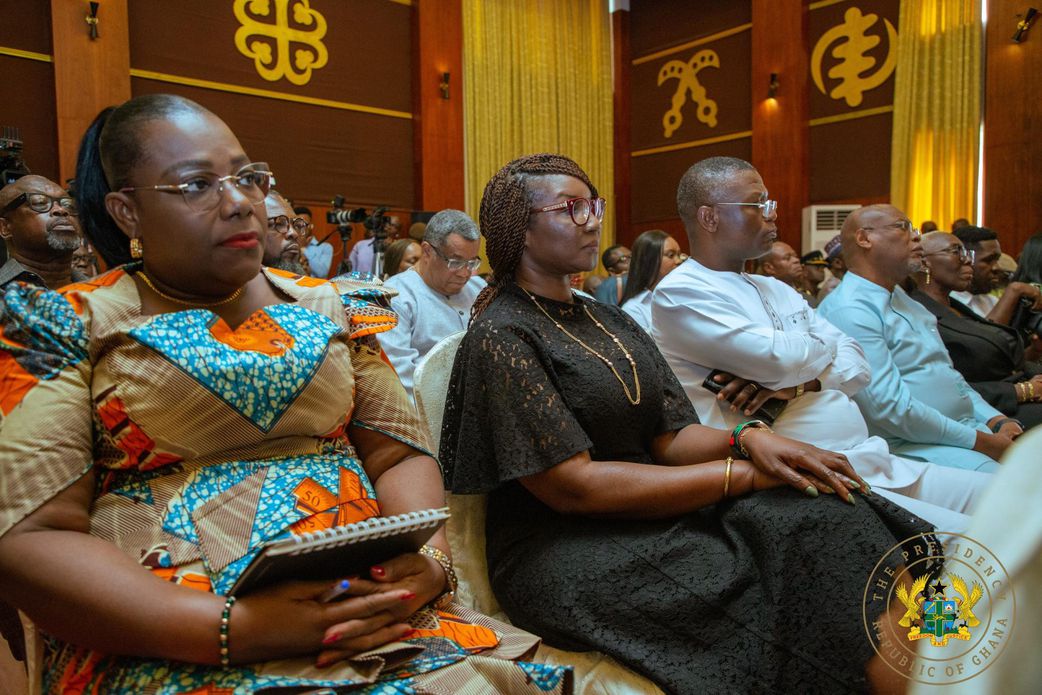
4. Gifts
-
All gifts received, locally or internationally, must be submitted to the Secretary to Cabinet for proper display.
-
A Minister may retain a gift only if its estimated value does not exceed GHS 20,000.
-
Gifts exceeding GHS 20,000 may be kept during tenure but must be declared to Cabinet.
-
Upon leaving office, such gifts must be handed over to Cabinet unless the Minister is granted explicit permission by the President to retain them.
5. Hampers
Ministers are prohibited from using government funds, including internally generated funds, to purchase hampers or other gifts—except when rewarding staff for exceptional performance or as part of an end-of-service benefit.
Government entities wishing to distribute hampers as part of corporate policy must obtain written approval from the Chief of Staff.
6. Declaration of Assets and Liabilities
In line with Article 286 of the 1992 Constitution, Ministers must submit a written declaration of all assets and liabilities—both direct and indirect—to the Auditor-General before taking office, at the end of every four-year term, and upon concluding their tenure.
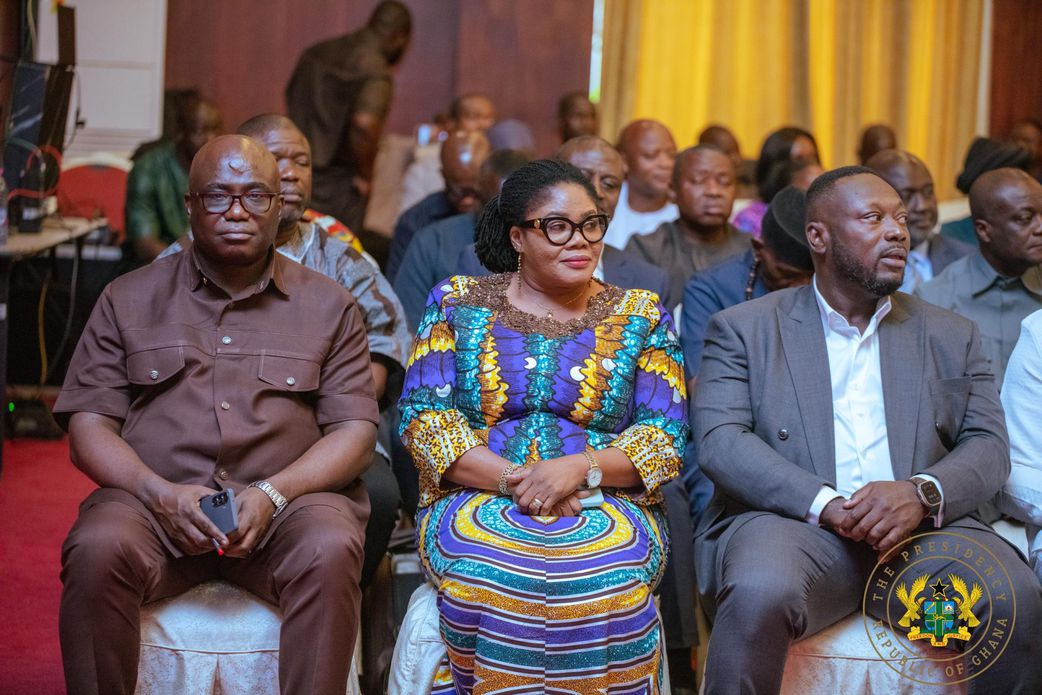
7. Fees and Other Payments
-
Ministers must not solicit appearance fees or personal payments related to their official duties.
-
Any such payment offered—whether for official or unofficial engagements—must be approved in advance by the President.
-
If accepted, the payment must be declared as part of the Minister’s personal assets.
8. Ministerial Travel
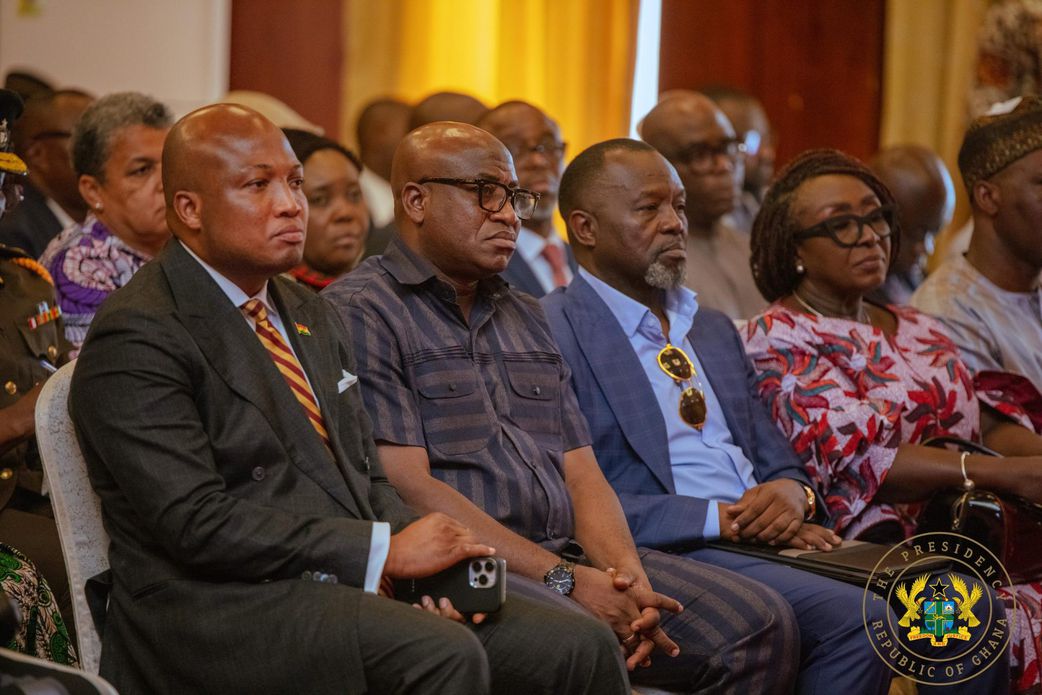
Ministers must obtain prior approval from the Chief of Staff for any international travel, regardless of whether the trip is official or personal.
This ensures that the Office of the Chief of Staff is always aware of a Minister’s whereabouts.
9. Product Endorsement
Ministers are prohibited from endorsing products or services on television or other media platforms, except in party political advertisements or approved non-political public service campaigns (e.g., promoting public health or safety).
No fee should be expected or accepted for such appearances.
ALSO READ:Â Asset declaration: Dumelo, IGP, 53 others to be sacked by May 7 if they fail to comply
10. Relations with the Judiciary and Other Government Agencies
Ministers must ensure that both they and their staff maintain a non-interfering, arm’s-length relationship with the judiciary and other government institutions to uphold institutional independence.

